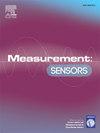Ecologizing STEM education: Measuring and managing for stakeholder empowerment
Q4 Engineering
引用次数: 0
Abstract
Ecologizing education by situating it in the workplace and other environments in which new learning is applied improves outcomes by structuring personal experiences connecting knowledge and its use. Since 2015, an international movement of formal and informal educators, employers, government offices, philanthropists, and community groups have collaborated to ecologize science, technology, engineering, and mathematics (STEM) learning with the aim of facilitating the creation of otherwise unimaginable future technical and career developments. Ecologizing requires coordinating these groups' activities while they operate at differing micro, meso, and macro levels. Ostrom's theory of participatory social ecologies implies a mathematical model of hierarchically complex relations of data, instruments, and theory. The Caliper measurement system structures the STEM learning ecosystems' communications at these three levels with the aim of maximizing evolutionary potentials, doing so by providing processes of natural selection with opportunities for amplifying innovative new forms of sociotechnical life adaptively integrated with their environments.
生态STEM教育:利益相关者赋权的测量和管理
将教育置于工作场所和其他应用新知识的环境中,从而实现教育的生态化,通过构建连接知识及其使用的个人经验来改善结果。自2015年以来,正式和非正式教育工作者、雇主、政府部门、慈善家和社区团体共同发起了一场国际运动,旨在促进科学、技术、工程和数学(STEM)学习的生态化,以促进创造原本难以想象的未来技术和职业发展。生态化需要在不同的微观、中观和宏观层面协调这些群体的活动。奥斯特罗姆的参与式社会生态学理论暗示了数据、工具和理论之间层次复杂关系的数学模型。Caliper测量系统在这三个层次上构建STEM学习生态系统的通信,目的是最大化进化潜力,通过为自然选择过程提供机会,扩大社会技术生活的创新新形式,使其适应环境。
本文章由计算机程序翻译,如有差异,请以英文原文为准。
求助全文
约1分钟内获得全文
求助全文
来源期刊

Measurement Sensors
Engineering-Industrial and Manufacturing Engineering
CiteScore
3.10
自引率
0.00%
发文量
184
审稿时长
56 days
 求助内容:
求助内容: 应助结果提醒方式:
应助结果提醒方式:


